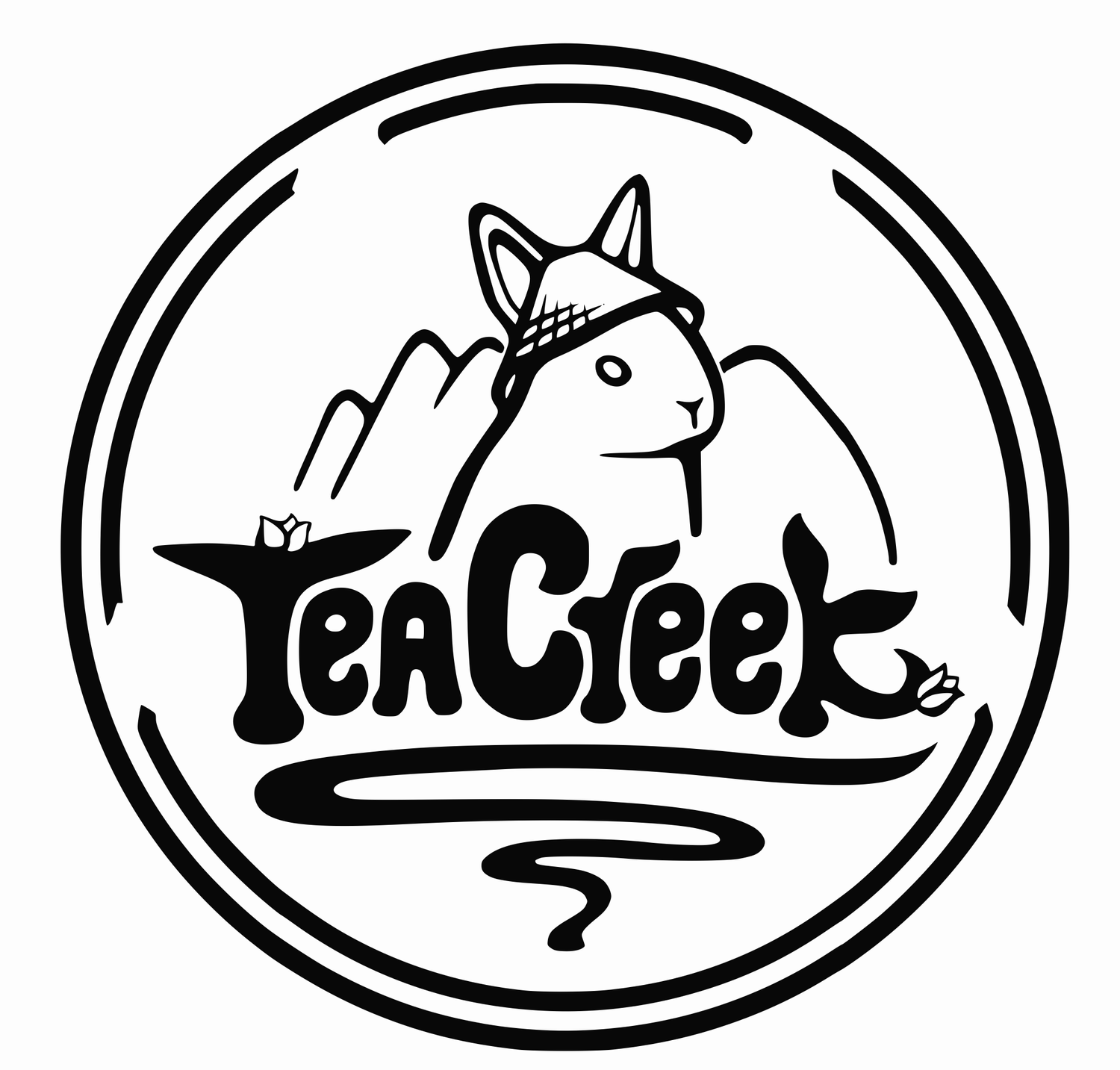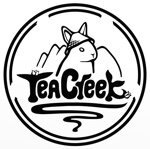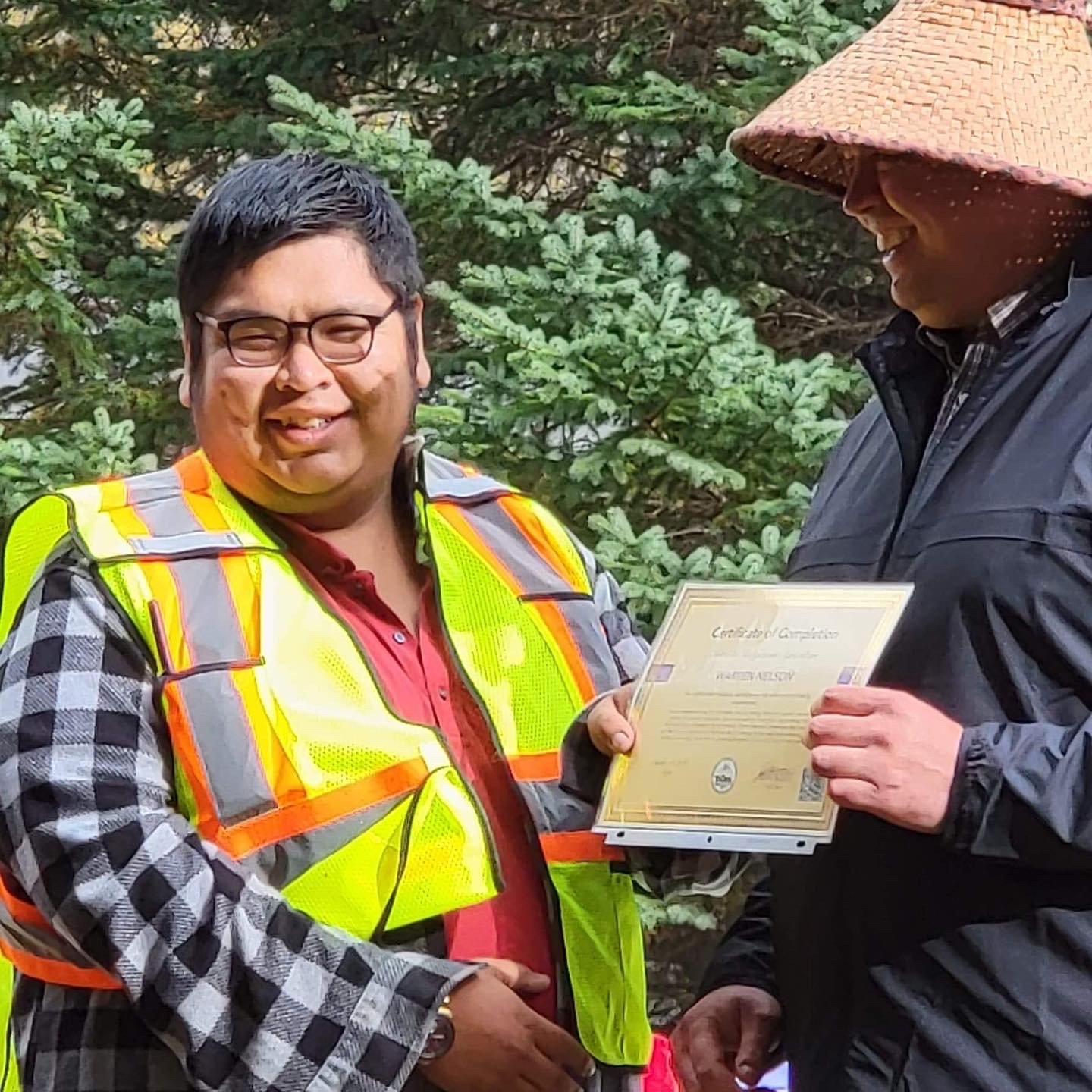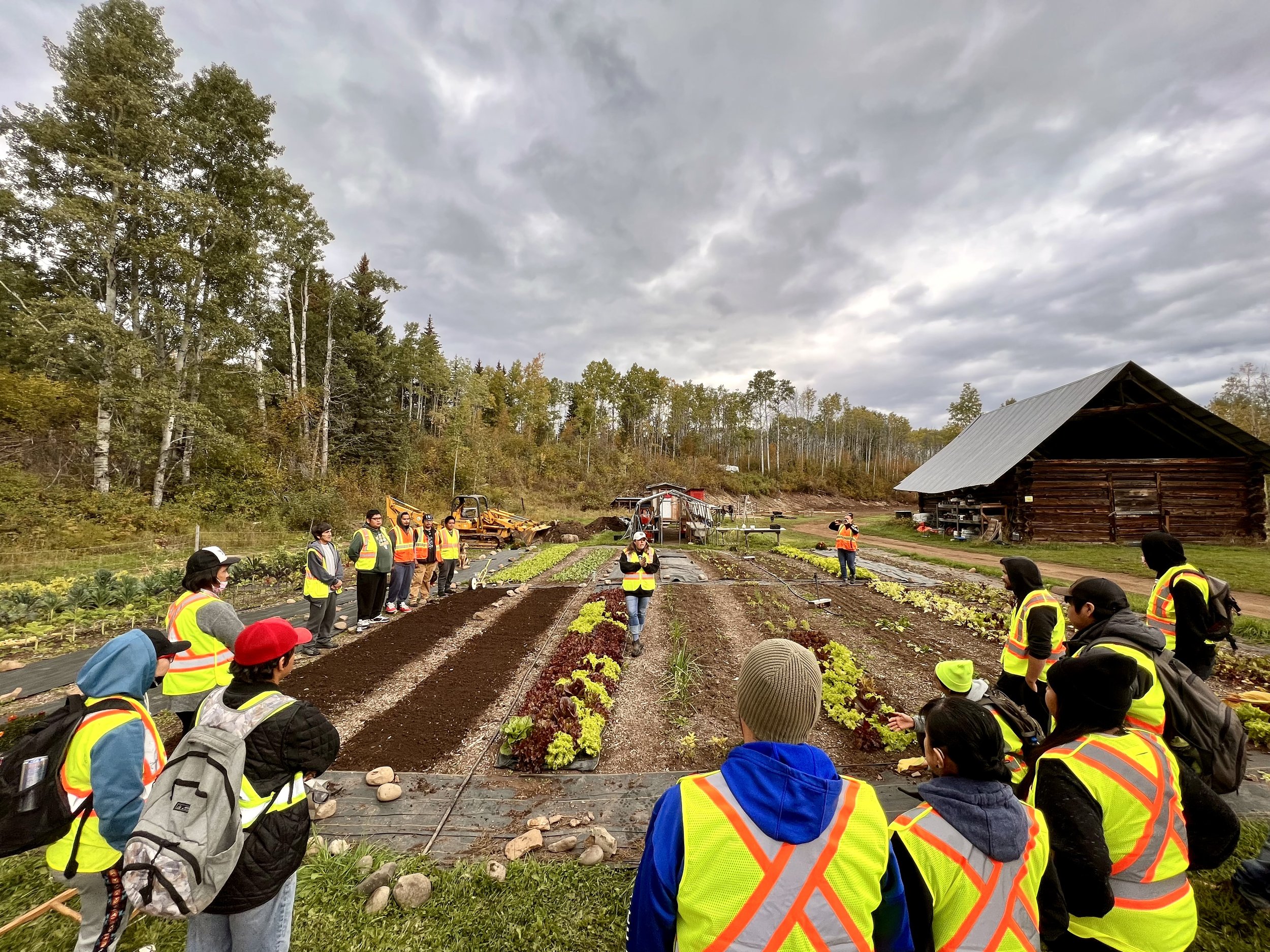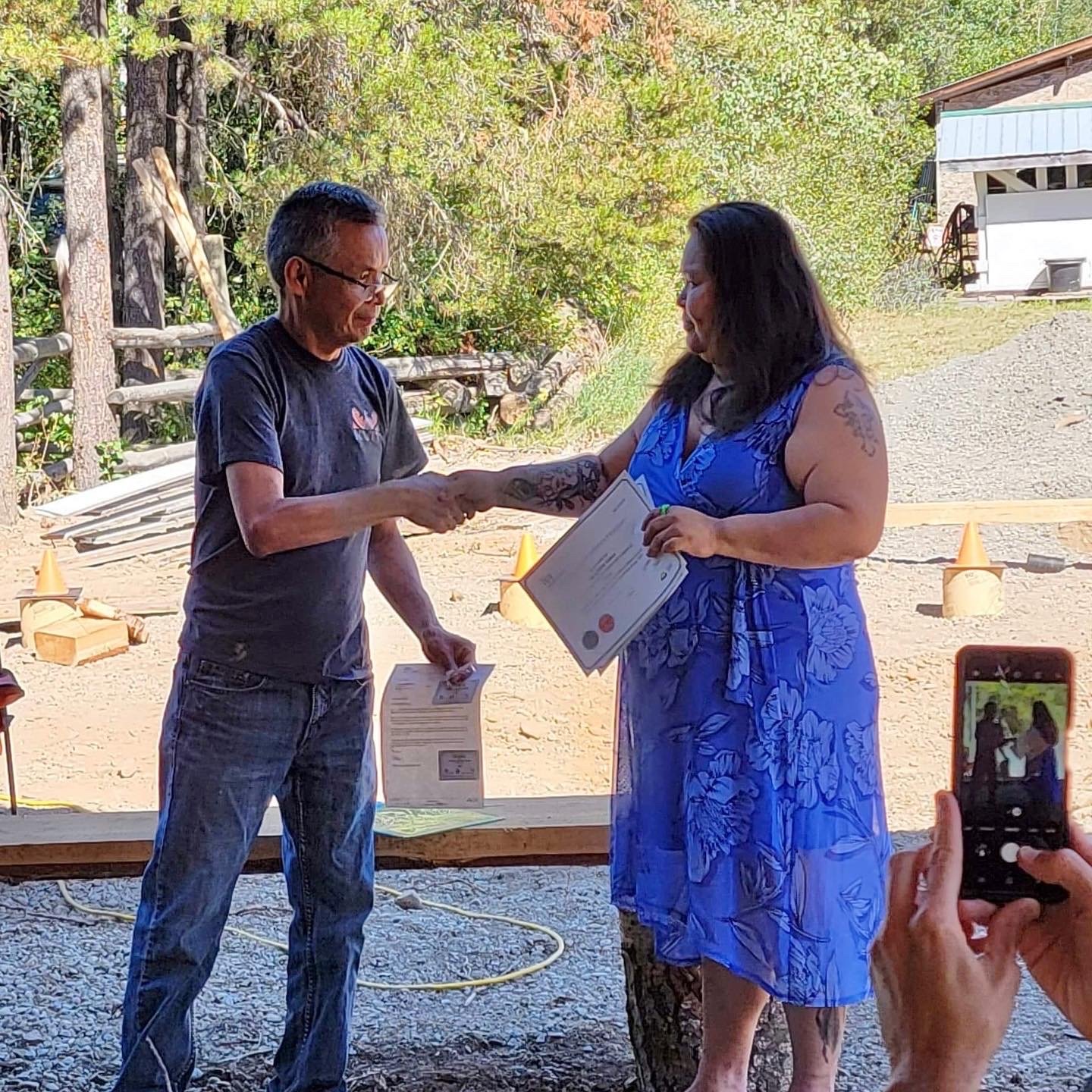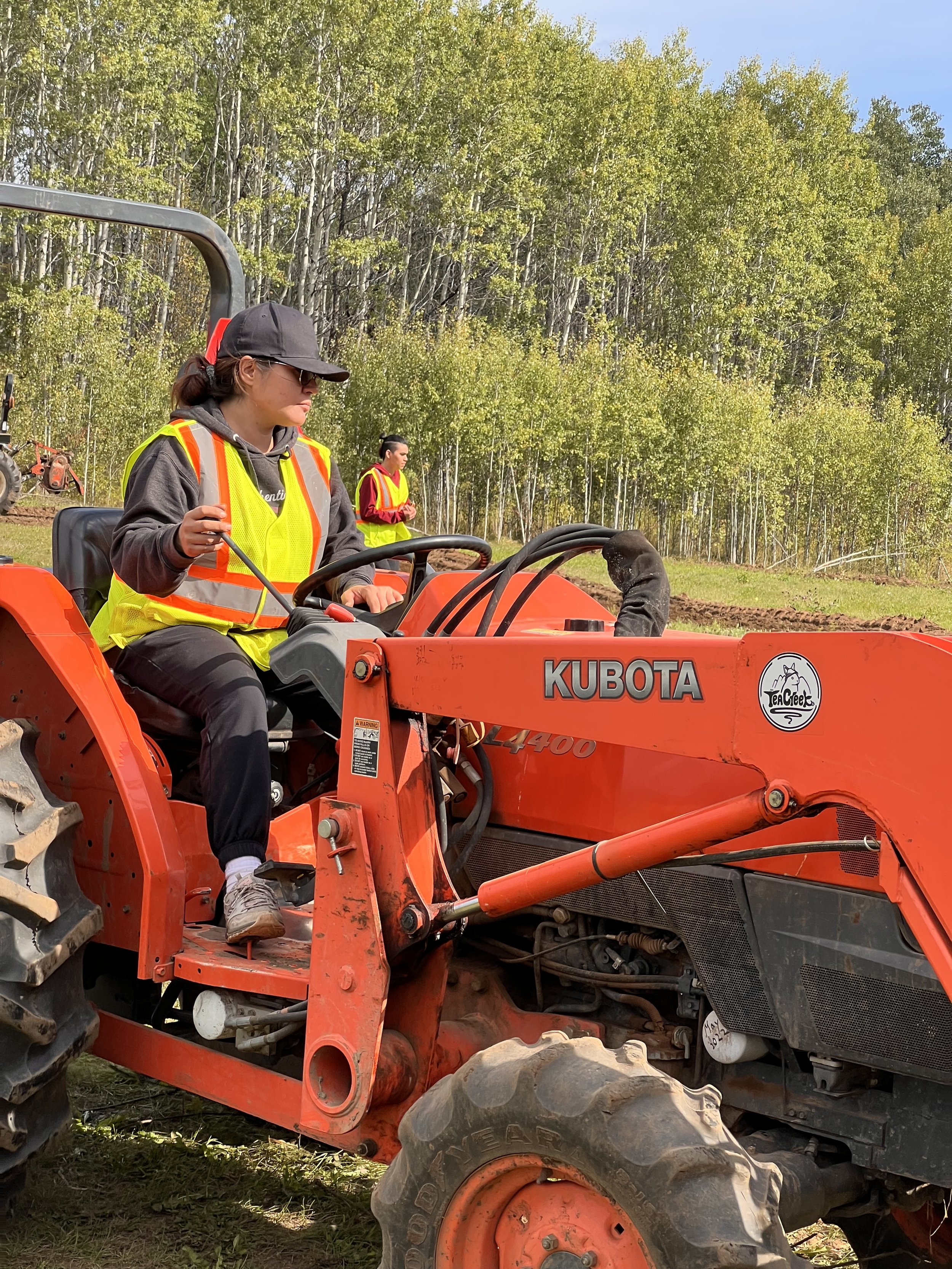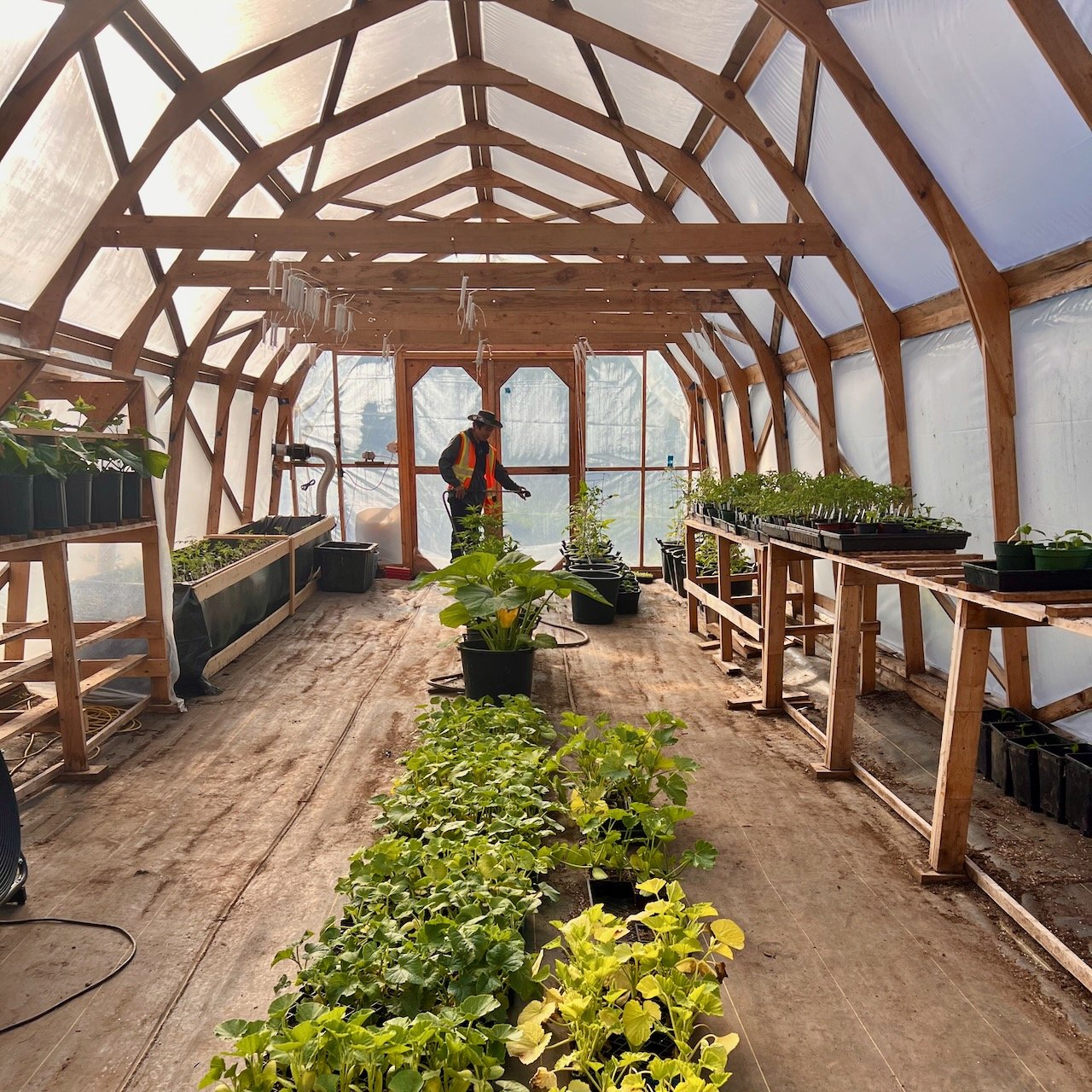
Impact Report 2022
Award-winning, Indigenous-led, culturally-safe, land-based Indigenous food sovereignty and trades training
Winner, BC Land Awards for Foodlands 2022
Selected by the United Nations F.A.O. as Canada’s Food Hero
•180 Indigenous enrolments for training
This is an incredible number - for context, our Indigenous enrolments are 14% of the entire enrolment number for our regional college (2019 numbers). We have significant grass-roots participation in our Indigenous-led, land-based, culturally-safe training programs.
Our most popular trainings among enrolments are:
#1 Heavy Equipment Operator (HEO)
#2 Cannabis for Medicine
#3 Indigenous Agriculture
#4 & #5 Carpentry and Professional Cook
Compared to last year: 84% increase in enrolments over the same time period (Spring - Fall).
Did you Know: 77% of participants self-disclosed at least 1 barrier that would prevent them from attending training, starting a business, or getting a job.
•Over 100 grads from at least 1 training program
As of this writing, we had 108 training completions at Tea Creek. Participants graduated from programs ranging from workshops to certifications, to short-term training, to training intensives.
Some of our training offerings included:
Introductory Trades Training (HEO, Carpentry, Professional Cook, Professional Painter, and more)
Agriculture, Gardening, and Farm-to-Table workshops
Safety trainings and certifications
Apprenticeship training
First Aid and Food Safe certifications
Compared to last year: 170% increase in training completion compared to the same time period last year (Spring - Fall)
•87% report improvements to mental health
During exit interviews, most trainees reported significant improvements to mental and physical health as a result of their participation at Tea Creek. Improvements include in some cases a reduction in suicidal ideation and depression, healthier eating, weight loss, improved strength, and more hope and self-esteem.
Health continues to be one of the biggest single benefits reported from trainees. Improved mental health has direct links to better future outcomes in life.
We are actively seeking partners for our health work, so we can add dedicated, trained support staff and improve the depth of health benefits.
•••What do the dots mean?•••
Glad you asked! The green dots mean we were funded for this outcome. The yellow dots means we were partially funded - for example, we were funded for meals but spent our meals budget half way through - thanks to off-the-charts participation on our site. The red dots means not funded at all, or marginally for that outcome.
We were funded to only 29% of our outcomes this year - and we would love more partners for 2023. If you would like to work with us on these amazing outcomes and more, please contact us!
We are looking for:
More First Nations community partners
More funding partners
More in-kind contributors and helpers
For ideas on how you can partner with Tea Creek, visit www.supportteacreek.com or you can email peter@teacreek.ca
•1,200+ additional unique Indigenous guests
We hosted an incredible number of additional Indigenous guests who came to experience learning in our Tea Creek Model. Additional guests included:
Pre-school, elementary, and high-school age children
Adults, elders, and community groups
Students in other post-secondary training programs looking for Indigenous training
Elected and hereditary leadership
Fun fact - this represents about 15% of our local Indigenous population including babies, kids, adults, and elders!
Compared to last year: Community visits and activity was double (100% more) than last year. We ended the season with a waiting list of Indigenous groups and organizations who wanted to spend time at Tea Creek.
•7,000+ hot meals served
Our kitchen averaged over 1,000 meals per month from April - October, keeping all our trainees and guests fed with hot breakfasts and lunches - with many of the ingredients coming fresh from our fields. The kitchen was also one of our training centres - constantly busy with trainees who learned directly from Red Seal Indigenous Chef Tania.
Our kitchen started as a wood shed in 2019, was turned into an outdoor kitchen in 2020, and was expanded with the support of a funder through the Indigenous Food Sovereignty Assn. (IFSA) in 2022.
Compared to last year: We served 1,000 more meals but over a much shorter period of time - 3 months shorter to be exact. Last year we averaged 600 per month, this year the average was 1,000 per month.
•5,500+ total Indigenous daily site visits
Tea Creek was host to over 5,500 Indigenous site visits between January and October 2022. This represents incredible, unbelievable growth over 2021 and the year before. On peak traffic days, we had over 50 people on site at once. Want to see what 5,500 visits look like? Check out our Facebook photos or our Instagram stream!
We opened up our site every Friday as a Community Day. We ended the year with a waiting list of Indigneous groups wanting to come to our training farm.
If you would like to partner with us to take credit for some of these amazing outcomes, please contact us!
Compared to last year: At least 350% more Indigenous traffic on site in 2022.
•20,000+lb of veggies gifted from the farm
We expanded our potato production by 50% again this year, growing 15,000lb and gifting most of it right off the field and into our local Indigenous communities. We also supplied our own kitchen all year, and also gifted other produce grown by our farmers and trainees including:
Carrots, lettuce, spinach, bagged salad mix
Broccoli, cabbage, brussels sprouts, napa cabbage
Onions, garlic, and leeks
Squashes of all kinds, and melons!
Berries, tomatoes, and cucumbers
Our donated veggies made it as far as the Downtown East Side (DTES) through our partners at the Aboriginal Front Door Society.
Compared to last year: The volume is roughly the same as last year. We increased our root crops but reduced others. We ran out of veg sooner, with the much higher participation on site. We need significantly expanded washing/ pack and cold storage facilities to grow. We need funding partners to continue and grow.
•1 Indigenous Red Seal
In a beautiful ceremony, BC’s first Indigenous Red Seal Chef Cook Andrew George presented Red Seal certification to Tania Stevens (Gawa), BC’s newest Indigenous Red Seal Chef.
Tania was sponsored by Tea Creek as a direct apprentice through our relationship with the ITA BC and our MOU though IFSA.
According to the ITA, only 50% of Indigenous people who become apprentices have apprenticeship hours recognized. Tania had completed her schooling with flying colours and had been working in her trade for many years, but lacked an employer sponsor.
We are so proud to have worked with ITA BC and the BC Ministry of AEST to make a positive difference. Chef Tania now has her long overdue Red Seal certification. Big win!
Compared to last year: We signed an MOU with ITA BC in the winter of 2022, so our direct apprenticeship program is brand new. AEST supported this certification through our partner community Gitwangak. We are looking for funders for 2023 and beyond.
•13 Indigenous direct apprentices
Tea Creek and IFSA directly sponsored 13 Indigenous Apprentices this year. Our work included ensuring each apprentice has an ITA apprenticeship card, and identifying any barriers to their next level ticket and working with our partners to overcome those barriers.
IFSA and Tea Creek recognized over 10,000 apprenticeship hours in 2022.
We are looking forward to finding more partners and expanding this important work in the coming years.
Compared to last year: This program is brand new for 2022
•Participation from many nations
We hosted trainees and guests from all over what is now BC. 51% of trainees were Gitxsan, 29% Wet’suwet’en, 16% Nisga’a, 10% Tsimshian, and 10% from other Indigenous groups.
We received and hosted groups travelling in from far away to come to Tea Creek. Twice this season we hosted a group from the Aboriginal Front Door Society in the DTES, who joined us in the Spring and Fall.
Compared to last year: Our overall participation numbers were way up, and in terms of representation, we saw increases in participation from the coast (Tsimshian) and interior territories (Wet’suwet’en).
•Indigenous-led, Indigenous staffed
A majority Indigenous staff was maintained at every level of Tea Creek in 2023. We completed the year with 86% of our FTE staff being Indigenous (higher if you include PT and contractors). We also employed trainees on top of that, offering living allowances to trainees who needed the extra financial support to attend training.
Wages were our top expense in 2022.
Compared to last year: We increased our staffing levels from 9 FTE up to 17 FTE in 2022.
•Balance in participation
Our culturally-safe model is a welcome environment for Indigenous people of all ages, backgrounds, and situations.
Disabilities: 32% of enrolled trainees disclosed a disability of some kind.
Gender: The gender breakdown is very close to 49% “she,” 49% “he,” and 1% “they.” We get asked if certain trades are heavy in certain genders - and the answer is “sometimes.” For example, last year most HEO trainees were male, this year a majority were female.
Age: Our average enrolled trainee age this year is 36, with a good number of youth, elders, and everyone in-between.
•First “away” cohort success!
We used our B&B very well this season as we hosted our first-ever “away” cohorts. We hosted three different nations at different times who sent community members to stay in our B&B and complete training intensives. The intensives were designed to compress long trainings into a shorter time period through 6-day training weeks.
These cohorts were a big success, with all trainees reporting that they felt at home in our B&B and at Tea Creek.
•Thousands of seeds and starts distributed
With the support of donors and funders, we were able to distribute many thousands of free seeds and seed potatoes to surrounding Indigenous communities and families. We also started plants in our training nursery and offered free starts to local Indigenous gardens.
Compared to last year: We received a large donation of seeds, twice as many as last year. We worked with twice as many communities for seed distribution. We offered a similar amount of seed starts (baby plants) from the nursery.

